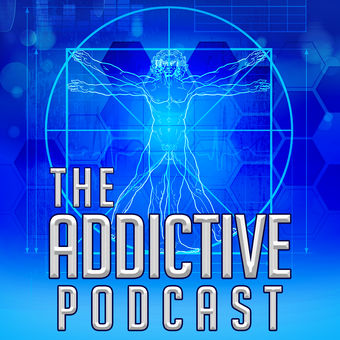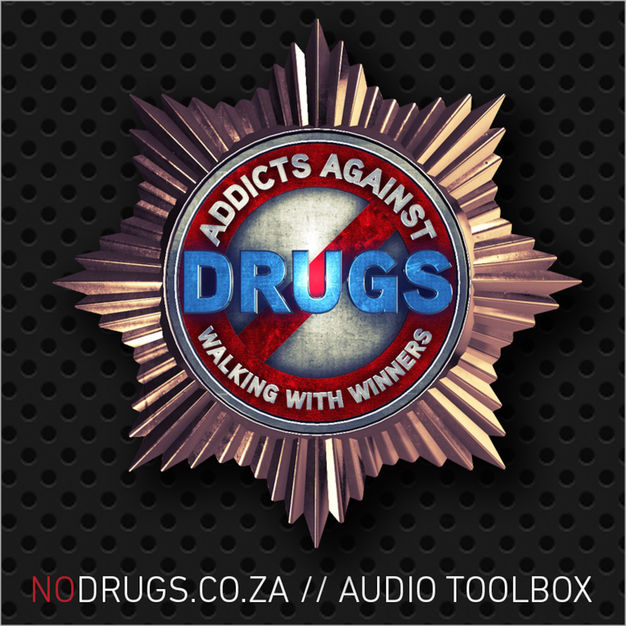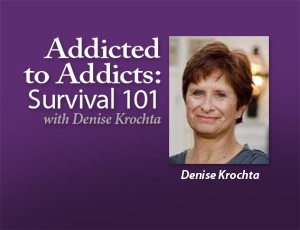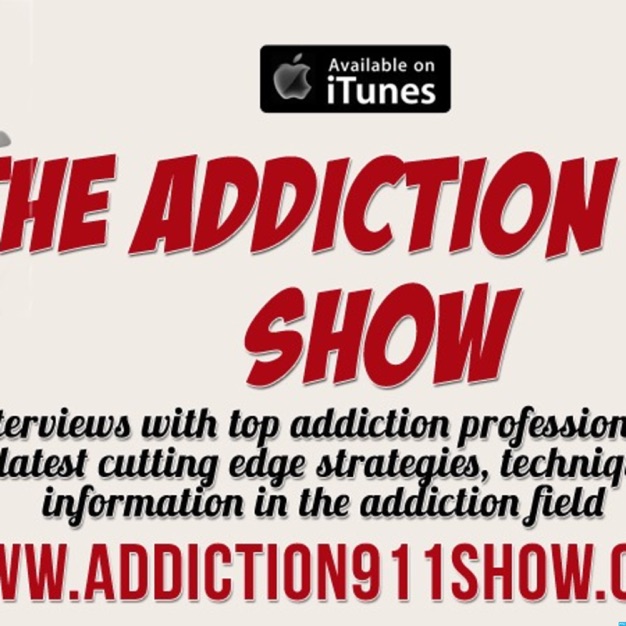
Drug Rehab Reports
DrugRehabReports.Com
Drug abuse facts from addiction treatment professionals presented in a short, no-nonsense style. Extensive information on prescription drug abuse, designer drugs and bath salts addiction, alcohol abuse, addiction treatment and recovery.
- 2 minutes 26 secondsRitalin Withdrawal and Detox
Ritalin Withdrawal and Detox is the subject of this Special Report by Siobhan Morse, executive director of The National Institute for Holistic Addiction Studies.
What is Ritalin?
Ritalin is used as part of a treatment program to control symptoms of attention deficit hyperactivity disorder, also known as ADHD, which is difficulty focusing, controlling actions, and remaining still or quiet.
Ritalin is also used to treat narcolepsy which is a sleep disorder that causes excessive daytime sleepiness and sudden attacks of sleep.
Ritalin is in a class of medications called central nervous system stimulants.
It works by changing the amounts of certain natural chemicals in the brain.
What is Ritalin withdrawal?
When Ritalin is used chronically and in sufficient quantities, a person will become dependent and will experience withdrawal symptoms upon cessation of use.
The duration and intensity of withdrawal symptoms will vary depending on the length and intensity of use.
Longer use of Ritalin in higher doses will result in more difficult and prolonged withdrawal symptoms.
Withdrawal symptoms may dissipate in a matter of weeks or they may endure for months.
What are Ritalin withdrawal symptoms?
Ritalin withdrawal symptoms include: depression, fatigue, mental fatigue, increased appetite, anxiety, irritability, agitation, long periods of sleep and suicidal thoughts.
What is Ritalin detox?
When Ritalin use is stopped abruptly, these withdrawal symptoms can be severe.
Medically supervised gradual withdrawal is when a strict schedule is put in place to reduce Ritalin dosage at a safe and steady pace.
Click Here to Download a PDF version of this report.
Do you have more questions about drug abuse and addiction?
Call our Toll-Free Recovery Hotline at 1-800-839-1682 and discover the best treatment options for you.
Our experienced counselors are available 24 hours a day to take your call and get you the help or information you need.
Our drug rehab center offers a unique and affordable holistic approach to addiction treatment.
Our holistic addiction and treatment program has helped addicts from all over the United States, Europe and Canada overcome their substance addictions and achieve long term recovery. We treat the individual's specific needs, including working with families.
Find the Original Post with Downloadable Podcast and Drug Abuse Fact Sheet Here: Ritalin Withdrawal and Detox
4 April 2014, 1:28 pm - 2 minutes 28 secondsMethylin Withdrawal and Detox
Methylin Withdrawal and Methylin Detox are discussed in this Special Report.
What is Methylin?
Methylin is used as part of a treatment program to control symptoms of attention deficit hyperactivity disorder, commonly known as ADHD which includes difficulty focusing, controlling actions, and remaining still or quiet.
Methylin is used also to treat narcolepsy which is the sleep disorder that causes excessive daytime sleepiness and sudden attacks of sleep.
Methylin is in a class of medications called central nervous system stimulants. It works by changing the amounts of certain natural substances in the brain.
What is Methylin withdrawal?
When Methylin is used chronically and in sufficient quantities a person will become dependent on Methylin and will experience withdrawal symptoms upon cessation of use.
The duration and intensity of withdrawal symptoms will vary depending on the length and intensity of use.
Longer use at higher doses will result in more difficult and prolonged withdrawal symptoms.
Withdrawal symptoms may dissipate in a matter of weeks or may endure for months.
What are the withdrawal symptoms of Methylin?
The withdrawal symptoms of Methylin include: being extremely tired, depression, sleep disorders, dizziness, shakiness, headache, diarrhea, constipation, dry mouth, and impotence.
What is Methylin detox?
When Methylin use is stopped abruptly these withdrawal symptoms can be severe.
Persons who are addicted to Methylin usually enter a substance medical detox in which the withdrawal effect and symptoms can be minimized at a safe and steady pace under the supervision of a medical doctor.
This kind of medical drug detox program has been proven safer, faster, and more comfortable than many other systems.
Click Here to Download a PDF version of this report.
Do you have more questions about drug abuse and addiction?
Call our Toll-Free Recovery Hotline at 1-800-839-1682 and discover the best treatment options for you.
Our experienced counselors are available 24 hours a day to take your call and get you the help or information you need.
Our drug rehab center offers a unique and affordable holistic approach to addiction treatment.
Our holistic addiction and treatment program has helped addicts from all over the United States, Europe and Canada overcome their substance addictions and achieve long term recovery. We treat the individual's specific needs, including working with families.
Find the Original Post with Downloadable Podcast and Drug Abuse Fact Sheet Here: Methylin Withdrawal and Detox
3 April 2014, 1:17 pm - 2 minutes 37 secondsMetadate Withdrawal and Detox
Metadate Withdrawal and Detox is the subject of this Special Report by Siobhan Morse, the executive director of The National Institute for Holistic Addiction Studies.
What is Metadate?
Metadate is used as part of a treatment program to control the symptoms of attention deficit hyperactivity disorder, also known as ADHD.
ADHD is when an adult or a child has more difficulty focusing, controlling actions, and remaining still or quiet than other people who are the same age.
Metadate is also used to treat narcolepsy which is a sleep disorder that causes excessive daytime sleepiness and sudden attacks of sleep.
Metadate is in a class of medications called central nervous system stimulants. It works by changing the amounts of certain natural substances in the brain.
What is Metadate withdrawal?
When Metadate is used chronically and in sufficient quantities, a person will become dependent on Metadate and will experience withdrawal symptoms upon cessation of use.
The duration and intensity of withdrawal symptoms will vary depending on the length and intensity of use.
Longer use at higher doses will result in more difficult and prolonged withdrawal symptoms.
Withdrawal symptoms may dissipate in a matter of weeks or may endure for several months.
What are the withdrawal symptoms of Metadate?
The withdrawal symptoms of Metadate can include: being extremely tired, depression, sleep disorders, dizziness, shakiness, headache, diarrhea, constipation, dry mouth, and impotence.
What is Metadate detox?
When Metadate use is stopped abruptly, these withdrawal symptoms can be severe. Persons who are addicted to Metadate usually enter a substance medical detox in which the withdrawal effects and symptoms can be minimized at a safe and steady pace under the supervision of a medical doctor.
This kind of medical drug detox program has been proven safe, fast and comfortable.
Click Here to Download a PDF version of this report.
Do you have more questions about drug abuse and addiction?
Call our Toll-Free Recovery Hotline at 1-800-839-1682 and discover the best treatment options for you.
Our experienced counselors are available 24 hours a day to take your call and get you the help or information you need.
Our drug rehab center offers a unique and affordable holistic approach to addiction treatment.
Our holistic addiction and treatment program has helped addicts from all over the United States, Europe and Canada overcome their substance addictions and achieve long term recovery. We treat the individual's specific needs, including working with families.
Find the Original Post with Downloadable Podcast and Drug Abuse Fact Sheet Here: Metadate Withdrawal and Detox
2 April 2014, 1:13 pm - 2 minutes 35 secondsDexedrine Withdrawal and Detox
Dexedrine Withdrawal and Detox is the subject of this Special Report by Siobhan Morse, the executive director of The National Institute for Holistic Addiction Studies.
What is Dexedrine?
Dexedrine is a stimulant drug that is available in tablet or sustained-release capsule form and generally prescribed to treat narcolepsy or attention deficit hyperactivity disorder, also known as ADHD.
Dexedrine is a central nervous system stimulant. Exactly how it works is not known.
It affects certain chemicals in the brain which may help to improve attention span and behavior.
What is Dexedrine withdrawal?
When Dexedrine is used chronically and in sufficient quantities a person will become dependent on Dexedrine and will experience withdrawal symptoms upon cessation of use.
The duration and intensity of withdrawal symptoms will vary depending on the length and intensity of use.
Longer use at higher doses will result in more difficult and prolonged withdrawal symptoms.
Withdrawal symptoms may dissipate in a matter of weeks or may endure for months.
What are the withdrawal symptoms of Dexedrine?
The withdrawal symptoms of Dexedrine include: depression, cravings, exhaustion, confusion, psychotic reactions, intense hunger, drowsiness, irritability, increased sleeping, disturbed sleep and violence.
What is Dexedrine detox?
When Dexedrine use is stopped abruptly, these withdrawal symptoms can be severe.
Medically supervised gradual withdrawal is when a strict schedule is put into place to reduce Dexedrine dosage at a safe and steady pace.
This reduces withdrawal symptoms and ensures the safety and health of recovering users.
Click Here to Download a PDF version of this report.
Do you have more questions about drug abuse and addiction?
Call our Toll-Free Recovery Hotline at 1-800-839-1682 and discover the best treatment options for you.
Our experienced counselors are available 24 hours a day to take your call and get you the help or information you need.
Our drug rehab center offers a unique and affordable holistic approach to addiction treatment.
Our holistic addiction and treatment program has helped addicts from all over the United States, Europe and Canada overcome their substance addictions and achieve long term recovery. We treat the individual's specific needs, including working with families.
Find the Original Post with Downloadable Podcast and Drug Abuse Fact Sheet Here: Dexedrine Withdrawal and Detox
1 April 2014, 1:07 pm - 2 minutes 30 secondsDesoxyn Withdrawal and Detox
Desoxyn Withdrawal and Detox is the subject of this Special Report by Siobhan Morse, the executive director of The National Institute for Holistic Addiction Studies.
What is Desoxyn?
Desoxyn is used for treating attention deficit disorders with hyperactivity in children. It is also used on a short-term basis in combination with other treatments to treat obesity.
Desoxyn may also be used for other conditions as determined by a physician.
Desoxyn is a central nervous system stimulant. The exact way it works is unknown.
It controls the release of certain chemicals in the brain that affect mood, behavior and appetite.
What is Desoxyn withdrawal?
When Desoxyn is used and in sufficient quantities, a person will become dependent and will experience withdrawal symptoms upon cessation of use.
The duration and intensity of withdrawal symptoms will vary depending on the length and intensity of use.
Longer use at higher doses will result in more difficult and prolonged withdrawal symptoms.
Withdrawal symptoms may dissipate in a matter of weeks, or may endure for months.
What are the withdrawal symptoms of Desoxyn?
The withdrawal symptoms of Desoxyn include: being extremely tired, depression, sleep disorders, dizziness, shakiness, headache, diarrhea, constipation, dry mouth and impotence.
What is the Desoxyn detox?
When Desoxyn use is stopped abruptly, these withdrawal symptoms can be severe.
Medically supervised gradual withdrawal is when a strict schedule is put into place to reduce Desoxyn dosage at safe and a steady pace.
This reduces withdrawal symptoms and ensures the safety and health of recovering users.
Click Here to Download a PDF version of this report.
Do you have more questions about drug abuse and addiction?
Call our Toll-Free Recovery Hotline at 1-800-839-1682 and discover the best treatment options for you.
Our experienced counselors are available 24 hours a day to take your call and get you the help or information you need.
Our drug rehab center offers a unique and affordable holistic approach to addiction treatment.
Our holistic addiction and treatment program has helped addicts from all over the United States, Europe and Canada overcome their substance addictions and achieve long term recovery. We treat the individual's specific needs, including working with families.
Find the Original Post with Downloadable Podcast and Drug Abuse Fact Sheet Here: Desoxyn Withdrawal and Detox
31 March 2014, 1:03 pm - 2 minutes 8 secondsViagra Withdrawal and Viagra Detox
Alex Castillo, a mental health counselor and substance abuse specialist, discusses Viagra Withdrawal and Viagra Detox in this Special Report.
What is Viagra?
Viagra relaxes muscles and increases blood flow to particular areas of the body.
Viagra is used to treat erectile dysfunction -- impotence in men.
What is Viagra withdrawal?
The confidence boost Viagra gives often leads to repetitive use of the drug, thus physical dependence and psychological dependence.
Additionally, when Viagra is taken with ecstasy and other amphetamines, it appears to create a hyper-sexualized state often referred to as “sextasy.”
The potential for developing withdrawal symptoms when using Viagra in combination with other drugs is higher than when using Viagra alone.
What are the withdrawal symptoms of Viagra?
Diarrhea, dizziness, flushing, headache, heartburn, stuffy nose, and upset stomach.
What is Viagra detox?
Treatment for Viagra withdrawal is similar to treating for other erectile dysfunction medications.
Admission to a medically-supervised detox clinic will help the user to manage the worst of negative withdrawal symptoms.
In order to minimize the effects, it is recommended to gradually reduce the use of Viagra with the help of a healthcare professional.
Indeed, once the acute effects of Viagra are withdrawn or controlled, the focus of Viagra addiction treatment shifts to helping the patient overcome future temptations by addressing pressing lifestyle and emotional issues.
Click Here to Download a PDF version of this report.
Do you have more questions about drug abuse and addiction?
Call our Toll-Free Recovery Hotline at 1-800-839-1682 and discover the best treatment options for you.
Our experienced counselors are available 24 hours a day to take your call and get you the help or information you need.
Our drug rehab center offers a unique and affordable holistic approach to addiction treatment.
Our holistic addiction and treatment program has helped addicts from all over the United States, Europe and Canada overcome their substance addictions and achieve long term recovery. We treat the individual's specific needs, including working with families.
Find the Original Post with Downloadable Podcast and Drug Abuse Fact Sheet Here: Viagra Withdrawal and Viagra Detox
30 March 2014, 1:29 pm - 2 minutes 50 secondsConcerta Withdrawal and Detox
Concerta withdrawal and detox is the subject of this Special Report by Siobhan Morse, the executive director of the National Institute for Holistic Addiction Studies.
What is Concerta?
All stimulants work by increasing dopamine levels in the brain. Dopamine is a brain chemical associated with pleasure, movement, and attention.
Concerta belongs to the group of medications called central nervous system stimulants.
It is used to treat attention deficit hyperactivity disorder, ADHD and narcolepsy which is an uncontrollable desire for sleep or sudden attacks of deep sleep.
Concerta increases attention and decreases restlessness. However, when taking in doses and routes other than those prescribed, stimulants can increase brain dopamine in a rapid and highly amplified manner as do most other drugs of abuse, disrupting normal communication between brain cells, producing euphoria and increasing the risk of addiction.
What is Concerta withdrawal?
When Concerta is used chronically and in sufficient quantities, a person will become dependent on Concerta and will experience withdrawal symptoms upon cessation of use.
The duration and intensity of withdrawal symptoms will vary depending on the length and intensity of use.
Longer use at higher doses will result in more difficult and prolonged withdrawal symptoms.
Withdrawal symptoms may dissipate in a manner of weeks or may endure for months.
What are the withdrawal symptoms of Concerta?
The withdrawal symptoms of Concerta include: tiredness, panic attacks, psychosis, irritability, crankiness, extreme hunger, depression and nightmares.
What is Concerta detox?
When Concerta use is stopped abruptly, these withdrawal symptoms can be severe.
Medically supervised gradual withdrawal is when a strict schedule is put into place to reduce Concerta dosage at a safe and steady pace.
This reduces withdrawal symptoms and ensures the safety and health of recovering users.
Click Here to Download a PDF version of this report.
Do you have more questions about drug abuse and addiction?
Call our Toll-Free Recovery Hotline at 1-800-839-1682 and discover the best treatment options for you.
Our experienced counselors are available 24 hours a day to take your call and get you the help or information you need.
Our drug rehab center offers a unique and affordable holistic approach to addiction treatment.
Our holistic addiction and treatment program has helped addicts from all over the United States, Europe and Canada overcome their substance addictions and achieve long term recovery. We treat the individual's specific needs, including working with families.
Find the Original Post with Downloadable Podcast and Drug Abuse Fact Sheet Here: Concerta Withdrawal and Detox
30 March 2014, 12:54 pm - 2 minutes 38 secondsAdderall Withdrawal and Detox
In this Special Report, Siobhan Morse, the executive director of the National Institute for Holistic Addiction Studies, discusses Adderall withdrawal and detox.
What is Adderall?
All stimulants work by increasing dopamine levels in the brain.
Dopamine is a brain chemical or a neurotransmitter associated with pleasure, movement, and attention.
Adderall is a combination of amphetamine and dextroamphetamine which belong to the group of medicines called central nervous system stimulants.
It is used to treat attention deficit hyperactivity disorder, also called ADHD, and narcolepsy which is an uncontrollable desire for sleep or sudden attacks of deep sleep.
What is Adderall withdrawal?
When Adderall is used chronically and in sufficient quantities, a person will become dependent on Adderall and will experience withdrawal symptoms upon cessation of use.
The duration and intensity of withdrawal symptoms will vary depending on the length and intensity of use.
Longer use at higher doses will result in more difficult and prolonged withdrawal symptoms.
Withdrawal symptoms may dissipate in a matter of weeks, or may endure for months.
What are the withdrawal symptoms of Adderall?
After discontinuing use of Adderall, withdrawal symptoms can include: depression, fatigue, mental fatigue, increased appetite, anxiety, irritability, agitation, long periods of sleep and suicidal thoughts.
What is Adderall detox?
When Adderall use is stopped abruptly, the withdrawal symptoms can be severe.
Medically supervised, gradual withdrawal is when a strict schedule is put in place to reduce Adderall dosage at a safe and steady pace.
This reduces withdrawal symptoms and ensures safety and the health of recovering users.
Click Here to Download a PDF version of this report.
Do you have more questions about drug abuse and addiction?
Call our Toll-Free Recovery Hotline at 1-800-839-1682 and discover the best treatment options for you.
Our experienced counselors are available 24 hours a day to take your call and get you the help or information you need.
Our drug rehab center offers a unique and affordable holistic approach to addiction treatment.
Our holistic addiction and treatment program has helped addicts from all over the United States, Europe and Canada overcome their substance addictions and achieve long term recovery. We treat the individual's specific needs, including working with families.
Find the Original Post with Downloadable Podcast and Drug Abuse Fact Sheet Here: Adderall Withdrawal and Detox
29 March 2014, 12:50 pm - 3 minutes 21 secondsRitalin Addiction and Abuse
Ritalin Addiction and Abuse is the subject of this Special Report by Siobahn Morse, the executive director of The National Institute for Holistic Addiction Studies.
What is Ritalin?
Ritalin is in a class of medications called central nervous system stimulants. They work by changing the amounts of certain natural substances in the brain.
Ritalin is used as part of a treatment program to control the symptoms of attention deficit hyperactive disorder, also called ADHD.
ADHD is when an individual has more difficulty focusing, controlling actions, and remaining still or quiet than other people who are the same age.
Ritalin is also used to treat narcolepsy which is a sleep disorder that causes excessive daytime sleepiness and sudden attacks of sleep.
What are the effects of Ritalin?
If Ritalin is used as directed by a medical doctor, it has no side effects. However, when obtained illegally and abused by recreational users, its improper use can lead to dependence and eventually addiction.
In the United States, Ritalin is classified as a Schedule II controlled substance, the designation used for substances that have a recognized medical value but present a high likelihood for substance abuse because of their addictive potential.
What is Ritalin addiction and abuse?
Ritalin has a high potential for drug abuse and drug dependence due to its pharmacological similarity to cocaine and amphetamine.
The main abusers of Ritalin are teenagers and young adults, particularly those in colleges and universities who use this drug as a study aid. They may introduce this drug into their bodies through injection, snorting or smoking.
Abusers often crush the tablets before using the powder. Some will mix it with cocaine and snort it while others smoke it together with illicit substances like marijuana.
There are also those who mix the powder with water and inject it into the body.
What are the side effects of Ritalin?
In high doses for an extended period of time, the Ritalin user may experience paranoia, schizophrenia, and psychosis. Psychosis symptoms include: hearing voices, visual hallucinations, and/or ideation to harm the self or others.
What are the withdrawal symptoms of Ritalin?
Tiredness, panic attack, psychoses, irritability, extreme hunger, depression, and nightmares.
Click Here to Download a PDF version of this report.
Do you have more questions about drug abuse and addiction?
Call our Toll-Free Recovery Hotline at 1-800-839-1682 and discover the best treatment options for you.
Our experienced counselors are available 24 hours a day to take your call and get you the help or information you need.
Our drug rehab center offers a unique and affordable holistic approach to addiction treatment.
Our holistic addiction and treatment program has helped addicts from all over the United States, Europe and Canada overcome their substance addictions and achieve long term recovery. We treat the individual's specific needs, including working with families.
Find the Original Post with Downloadable Podcast and Drug Abuse Fact Sheet Here: Ritalin Addiction and Abuse
28 March 2014, 12:45 pm - 2 minutes 20 secondsVicodin Withdrawal and Vicodin Detox
Vicodin Withdrawal and Detox is the subject of this Special Report by Alex Castillo, a mental health counselor and substance abuse specialist.
What is Vicodin?
Vicodin contains a combination of acetaminophen and hydrocodone.
Hydrocodone is in a group of drugs called opioid pain relievers.
An opioid is sometimes called a narcotic, and acetaminophen is a less potent pain reliever that increases the effects of hydrocodone.
Vicodin is used to relieve moderate to severe pain.
What is Vicodin withdrawal?
Vicodin addiction is typically fueled by the constant need to get more of the drug to prevent the user from going into withdrawal.
Vicodin withdrawal occurs because the individual, whether it is someone who is legitimately prescribed the medication or someone who is abusing illicitly, develops a physical and mental dependence on the drug over time.
When they stop using Vicodin, they begin to experience the uncomfortable and painful response that the body goes through as the result.
They will have strong cravings for Vicodin, and the withdrawal symptoms can be very similar to those experienced in heroin withdrawal.
What are withdrawal symptoms of Vicodin?
Anxiety, diarrhea, hot or cold flashes, kicking movements, loss of appetite, nasal discharge, nausea, severe backache, sneezing, twitching, muscle spasms, vomiting and weakness.
What is Vicodin detox?
Treatment for Vicodin addiction is similar to treatment for other opioid addictions.
Admissions to a medically supervised detox clinic will help the user to manage the worst of negative withdrawal symptoms.
In order to minimize the effects, it is recommended to gradually reduce the use of Vicodin with the help of a healthcare professional.
Click Here to Download a PDF version of this report.
Do you have more questions about drug abuse and addiction?
Call our Toll-Free Recovery Hotline at 1-800-839-1682 and discover the best treatment options for you.
Our experienced counselors are available 24 hours a day to take your call and get you the help or information you need.
Our drug rehab center offers a unique and affordable holistic approach to addiction treatment.
Our holistic addiction and treatment program has helped addicts from all over the United States, Europe and Canada overcome their substance addictions and achieve long term recovery. We treat the individual's specific needs, including working with families.
Find the Original Post with Downloadable Podcast and Drug Abuse Fact Sheet Here: Vicodin Withdrawal and Vicodin Detox
27 March 2014, 12:39 pm - More Episodes? Get the App
- http://www.drugrehabreports.com
- English
Your feedback is valuable to us. Should you encounter any bugs, glitches, lack of functionality or other problems, please email us on [email protected] or join Moon.FM Telegram Group where you can talk directly to the dev team who are happy to answer any queries.
 The Addictive Podcast
The Addictive Podcast
 ADDICTS AGAINST DRUGS
ADDICTS AGAINST DRUGS
 Detailing Addictions with Dr. Susan Blank, MD
Detailing Addictions with Dr. Susan Blank, MD
 Addicted to Addicts: Survival 101 – Denise Krochta
Addicted to Addicts: Survival 101 – Denise Krochta
 Addiction 911
Addiction 911